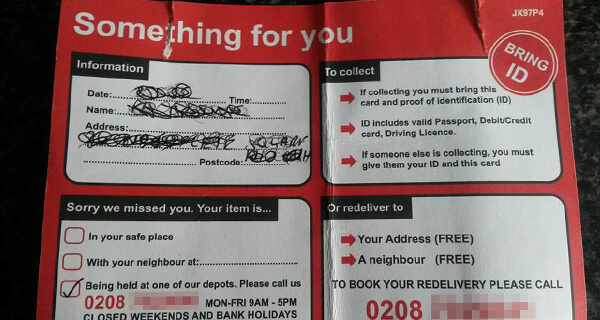Police have taken possession of a bulk delivery of scam post sent by professional fraudsters that was intended to con money out of recipients.

Scam letters can include those saying the recipient has won a non-existent lottery or is due to receive a windfall inheritance, among many more variations. All such scams ask victims to pay some money upfront, or an ‘admin fee’, to receive the goods, services or benefits that they will never receive.
If the recipient of one of these letters responds to the fraudsters, their names are put on a ‘suckers list’, which is sold to criminals across the world. Chronic victims of scam mail end up being hounded by numerous criminal organisations.
Met Police scam mail operation
In the first operation of its kind, officers from the Metropolitan Police’s Economic and Specialist Crime Unit (Operation Sterling), seized a bulk delivery of scam mail intended for vulnerable victims.
The operation began earlier in the year when police contacted 11 scam mail victims from across the UK who had been repeatedly targeted. These people were receiving more than 100 letters each week, the majority of which originated from outside the UK.
Over four weeks, the eleven victims were asked to collate their post, which was then analysed at New Scotland Yard. With the help of Royal Mail and Spring Global Mail, postal marks on the envelopes were used to source where the mail originated from and alert the authorities when the next shipment of mail arrived in the UK. Detectives can use this seized mail to identify chronic victims of crime, the perpetrators of the crime, and identify appropriate action in response.
As well as stopping hundreds of items of scam mail from reaching vulnerable targets, detectives hope today's operation will send warning messages to both the victims and perpetrators of this crime.
Scam mail has serious consequences
Detective Superintendent Mark Ponting, head of prevention and disruption for the Met Police's Economic and Specialist Crime Command, said: "The individuals behind this type of crime are cynical and pernicious, making their living by targeting and exploiting some of the most vulnerable and needy people in our society.
"For many of these victims, the bombardment of scam mail results in fear, severe financial difficulties and ultimately a decline in both physical and mental health.
"In at least five cases in the UK, it has ended in suicide.
"We hope that today's action, and the action that we will take in the future, will raise awareness of this crime amongst all sectors of society and prevent more people from falling victim to it.”
Marilyn Baldwin, of victim support group Think Jessica, said: "My mother Jessica was in her late seventies and suffering from (undiagnosed) age-related declining mental health when she was hunted down by scam mail criminals.
"For five years I tried to convince my mum that she was being scammed, but criminals claiming to be clairvoyants, lottery officials and solicitors led her to believe the family were against her - she would not co-operate.
"The only help I could find was lip service. I believe that the 30,000 scam letters we removed from her home contributed to her death in 2007.
"I am thrilled that Royal Mail, Spring Global Mail and the MPS [Metropolitan Police Service] are working together. I think we have turned a corner and along with our future awareness campaigns, we are now on the right road to protecting our most vulnerable and deterring those who prey on them."
If you have lost money to a fraud like this, report it to Action Fraud. Action Fraud also runs a service for vulnerable victims.
Read more about the Met Police mail scam operation on the Met Police website.
Please note: Action Fraud is not responsible for the content on external websites.
To report a fraud, call Action Fraud on 0300 123 2040 or use our online fraud reporting tool.



